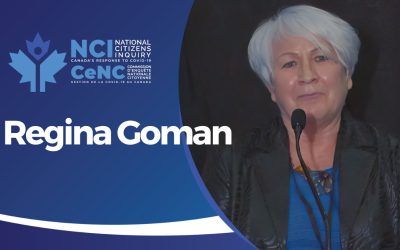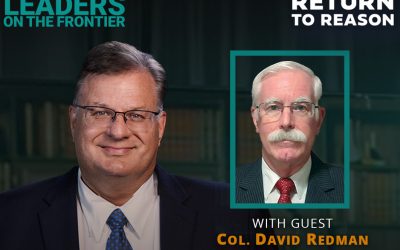Fraser wants the Liberal Party to return to "liberal values". But what are they? Has any ideological label been more contested, coveted and contorted than the term liberal? Its Latin root, liberalis, meaning "of freedom", is also the root of liberty; so how is it that lovers of liberty find themselves identifying enemies of liberty by calling them liberals?
Well, perhaps this morphological incongruity will soon be put right because after its orbit across the political spectrum, the term liberal may be headed home to where it belongs.
The Oxford English Dictionary presents quotations dated from 1375 to demonstrate how various spellings of the word were used to describe sciences, arts, education and behaviour. The earliest quotation to suggest a political ideology is dated 1692; its author, appropriately enough, is John Locke: "Let them find by experience, that the most liberal has always most plenty." But it wasn’t until the 19th century that the term was used to denote a mature political ideology of freedom. OED defines this conception of liberal as follows: "Favourable to constitutional changes and legal or administrative reforms tending in the direction of freedom or democracy. Hence used as the designation of the party holding such opinions, in England or other states; opposed to Conservative."
Conservatives of the 19th century favoured economic controls such as import tariffs to protect the landed gentry from downward pressure on grain prices. Liberals of that time favoured liberty, which meant free trade and free enterprise; that is, capitalism. And as Locke had predicted, unprecedented liberty produced unprecedented plenty.
Liberalism was such a powerful ideal, and its economic effects so propitious, that opposition was sidelined. But from the sidelines opponents craved a return to the old order, where everyone knew what to do, because their rulers told them. By the end of the 19th century liberalism’s opponents had decided that if it couldn’t be beaten, maybe it could be infiltrated and redirected.
Early in the new century the Fabians set about redirecting liberalism. In 1932 H. G. Wells advised the Young Liberals at Oxford to draw inspiration from the National Socialists of Italy and become "liberal fascists". Mussolini knew better. His doctrine put it this way: "If liberalism signifies the individual, then fascism signifies the state."
After World War II an even more bizarre strategy to sabotage liberalism evolved. The spin doctors managed to wrap defeated socialism with capitalism in one web, and triumphant socialism with liberalism in another. Capitalism, the child, was abducted and branded fascism. Liberalism, the mother, was made the wet nurse of Soviet-inspired socialism.
By the 1960s liberals were considered anti-capitalist and capitalists were considered fascists. This was a complete reversal of the original meaning of liberalism. Whereas 19th-century liberals made the individual sovereign over his own life and the state his protector, 20th-century liberals restored the pre-Enlightenment order: the individual’s interests subordinated to society’s interests, as judged by those in power, which meant the regulation of commerce and the redistribution of wealth, from those who produced it to those who didn’t.
When the 19th-century conception of liberalism was revisited it had to be identified as classical liberalism to distinguish it from contemporary liberalism, which was sometimes called social liberalism. In matters such as religious or sexual preferences it retained its original meaning: freedom. But in economic matters, on which all freedoms depend, liberalism had come to mean the opposite.
In short, whereas classical liberalism signified capitalism, social liberalism signified socialism (or the mix advocated by John Maynard Keynes). Then the Soviet Union imploded. By the 1990s the term capitalism could be used in polite society again.
Because of its handful of dogged philosophic and economic defenders, and the philosophic and economic bankruptcy of their opponents, the absurdity of equating capitalism with national socialism and of claiming that socialism was more beneficent than capitalism came to be more widely understood.
And now a reunion of liberalism with its abducted child, capitalism, may be coming to pass. In the US they drifted apart, but here in Australia mother and child kept in touch, and they have recently been brought together by some unlikely sponsors.
In his ridiculous condemnation of capitalism published in the February 2009 Monthly magazine, Kevin Rudd blamed the global financial crisis on 30 years of "neo-liberalism – that particular brand of free-market fundamentalism, extreme capitalism and excessive greed which became the economic orthodoxy of our time".
Thus he publicly, albeit pejoratively, brought capitalism and liberalism together with the neo prefix thrown in.
More recently a more acute observer, Noel Pearson, dispensed with the neo. In the May 22-23 edition of The Weekend Australian he referred to Milton Friedman as: "the leading liberal economist and nemesis of the Left" whose arguments were "in terms of freedom as well as economics".
Then, at the launch of the Liberals’ election campaign, Tony Abbott stated: "As a liberal, I support lower taxes, smaller government and greater freedom." He didn’t mean as a Liberal Party member, he meant as a liberal, and he didn’t feel the need to qualify the term with any prefix.
Abbott has a long, long way to go to deserve the moniker liberal, but if he uses it to denote defence of liberty, of the freedom to think, speak, aspire, act and keep the property so produced, he uses it legitimately. Welcome home, prodigal liberal.
John Dawson is the author of Washout, on the academic response to the fabrication of Aboriginal history


